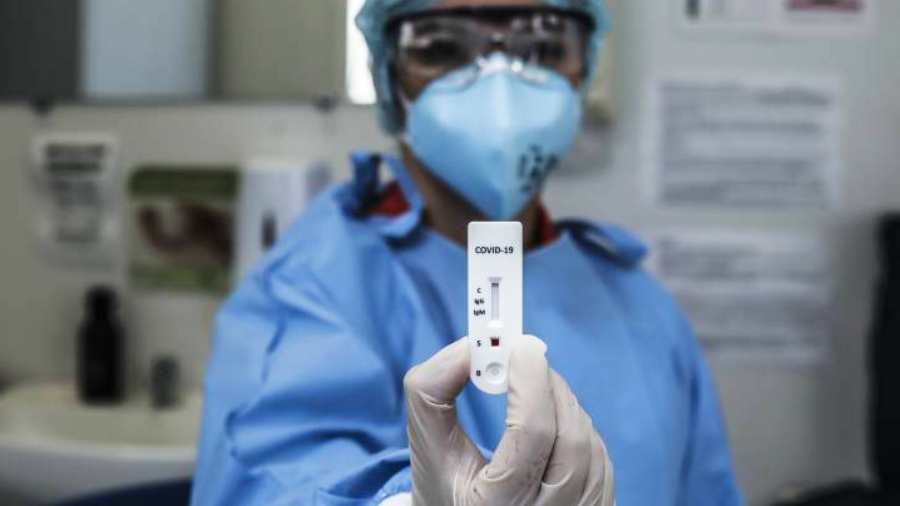
The Centers for Disease Control and Prevention made an update to the requirement for those who want to enter the U.S. country by air. These antigen tests are already available in some Salvadoran laboratories.
The U.S. government, through an official communication updated on Feb. 19 by the Centers for Disease Control and Prevention (CDC), has reported that “all passengers arriving in the United States by air must present proof of a negative result on the VOCID-19 screening test, or “evidence of recovery” of the virus.
This test must be done within three days prior to traveling to the United States, and the passenger must submit the relevant documentation before boarding the aircraft. “The airline will confirm the negative result of the VOCID-19 screening tests or the recovery documentation of all passengers before boarding,” the CDC details on its official website.
SEE: Rapid tests to detect COVID-19 will now be available in El Salvador
In the section on what types of SARS-VOC-2 detection tests are acceptable to comply with this order, the United States Government maintains the PCR-RTs (Real-Time Polymerase Reaction Chain), but at the site of the US Embassy in El Salvador, it is reported that the US immigration authorities also accept rapid antigen testing, Which are already available for sale and import in El Salvador since February 14, according to the National Directorate of Medicines.
Some Salvadoran laboratories that offer the test
There are already laboratories that have these antigens to detect COVID-19 available to the public, including the following: Max Bloch (costs $ 80 and delivers results in 4 to 6 hours); Laboratory Diagnostic Center (price $ 60, delivery 2 to 4 hours); and Analyze Laboratories ($ 40, results in one hour).
These rapid tests are also taken for nasopharyngeal swab, as is screening for PCR-RT. They take a sample of the person’s mucosa, a sample that is placed in a test similar to a pregnancy test, where there are reagents that will tell if the result is positive or negative in the presence of virus proteins.
Important: This test detects traces of the virus protein, but does not determine whether or not COVID-19 is active in the individual.
That is, if a quick test gives a positive result, this does not necessarily indicate that the person is infected, but they may have previously had the disease, as in their body there are antibodies generated against Sars-VOC-2 .
YOU MAY BE INTERESTED IN: The faces of health personnel after the experience of receiving the vaccine against COVID-19